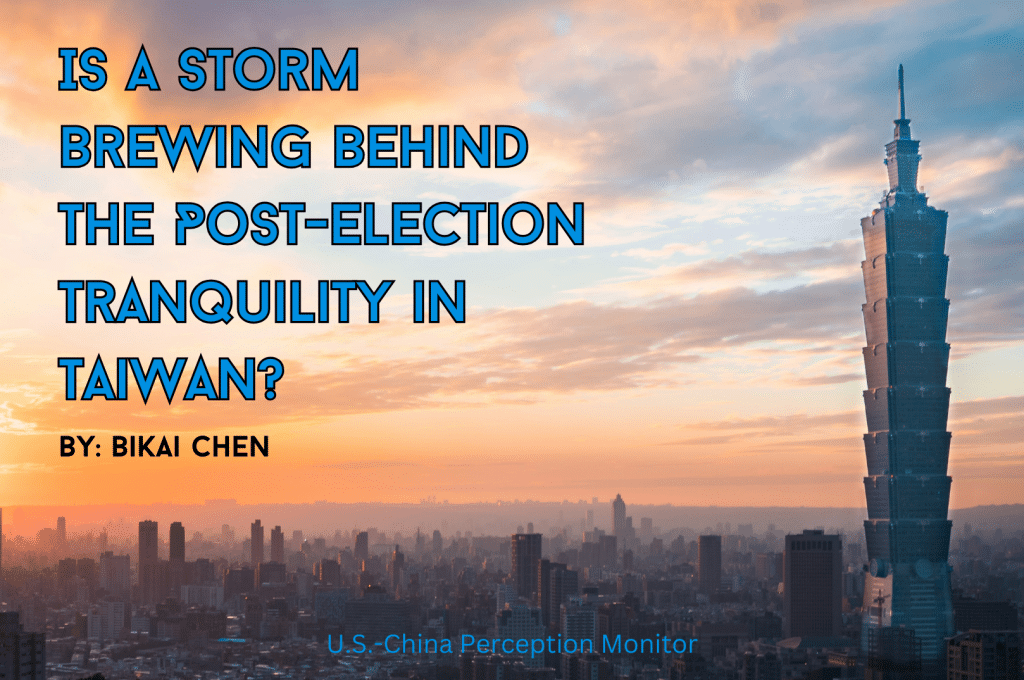When Will China Use Force to Reunite with Taiwan? Hu Xijin Explains His Position
Nationalism on Chinese Social Media Has Its Own Limits
Expressions of nationalistic sentiments have been growing on Chinese social media recently, a phenomenon that could work both for or against the Chinese government.
In January 2016, Tsai Ing-wen was elected president on the island of Taiwan. In response, thousands of mainland Chinese internet users leapt over the Great Firewall of China into Tsai’s Facebook page to marvel at the wonders of the Mainland and warn against Taiwanese independence (which her Party – the Democratic Progressive Party – is known to lean towards).
Putting aside the irony of the fact that, in order to succeed, these people were forced to undermine the very systems and institutions of the society they sought to promote, the Diba Expedition, as it has come to be known, stands as one of many recent high-profile expressions of Chinese nationalism.
The instigator of the expedition had humble beginnings. Many of the netizens came from an online forum originally dedicated to the Chinese soccer player Li Yi. Also known as Diba, the forum members were notable for their high level of organisation in implementing the expedition. People were assigned specific tasks, such as collecting photos and liking posts, and were asked to remain polite and reasonable in their postings – at least some members seem to have heeded this.
In contrast, the Little Pinks (小粉红), another online group that has been associated with the Diba Expedition, have no such compunction in their online activities. So-called because of their beginnings in a non-political chat group spruiking a pink background, the moniker was originally hurled as an insult at members as the forum gradually became more political and stridently nationalistic in its discussions before being appropriated to describe highly impassioned and nationalistic youth.
With social media as their platform, these impassioned netizens have wielded their collective clout to champion the PRC and censure anyone who dares to suggest otherwise. Indeed, a common thread through many of these events lies in the (perceived) slights to the integrity of China’s territory and character. Mainland backers of a Chinese film came under fire for casting a Taiwanese actor – Leon Dai – who appeared to support Taiwanese independence. Succumbing to the pressure, Dai was eventually replaced. American singer Lady Gaga faced a backlash after she met with His Holiness the Dalai Lama. French cosmetics company Lancôme dropped Hong Kong singer Denise Ho to placate calls to boycott the company due to Ho’s suspected support of Hong Kong independence. Australian Olympic swimmer Mack Horton was deluged with comments from Chinese netizens after calling Chinese swimmer Sun Yang a drug cheat.
Somewhat surprisingly, these displays of nationalistic fervour have been tolerated and even praised by Chinese authorities. State-run media such as The People’s Daily expressed approval at what they deemed the simple patriotic expressions of members. The Communist Youth League, too, offered (gendered) praise, urging readers to protect the girls.
Nevertheless, praise and endorsement have been less forthcoming as displays of nationalism have moved into the real world. Following the Hague’s tribunal ruling rejecting China’s territorial claims in the South China Sea, nationalist sentiment migrated from the internet to protests in front of KFC restaurants (which were seen as a symbol of US interests). Despite tolerating moderate public commentary online, the protests have been criticised as “irrational and disruptive…[to] the social order”.
Jessica Chen Weiss, associate professor of government at Cornell University, surmises that “[the] Chinese government is likely to suppress grass-roots expressions of nationalism when it wants freedom to manoeuvre and to signal reassurance”. In other words, censorship is only likely to occur to prevent opinions and policies deemed inimical to Chinese domestic and international interests from becoming the only publicly-acceptable course of action. This is why the vast majority of censored social media posts on the South China Sea ruling were not, in fact, just against the government’s position (although these were still censored). Rather, they consist of extreme versions of the Party line, espousing a strain of ultra-nationalism that would threaten the interests of the government should it become mainstream.
Herein lies the dilemma of nationalism in China. On the one hand, nationalist rhetoric can serve as a simple shortcut for harnessing public opinion to bolster government positions. On the other hand, this rhetoric can galvanise public opinion to such a degree that it can backfire if government actions fail to live up to the rhetoric. The English writer George Orwell asserted that nationalism manifests as a desire to gain something, often at the expense of others. China, and indeed all countries for that matter, would do well to remember this.
(Featured image credit: Associated Press/The Wall Street Journal)
By JUSTIN ELLIOTT JULY. 7, 2017
Justin Elliott is a contributor to www.uscnpm.org based in Melbourne, Australia.




